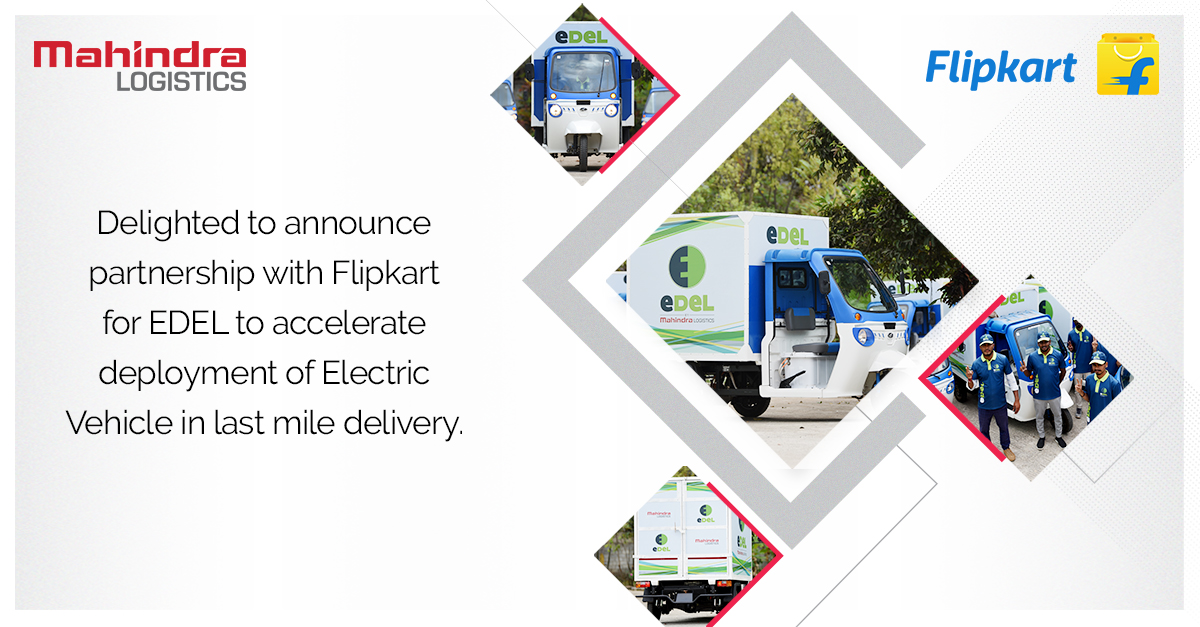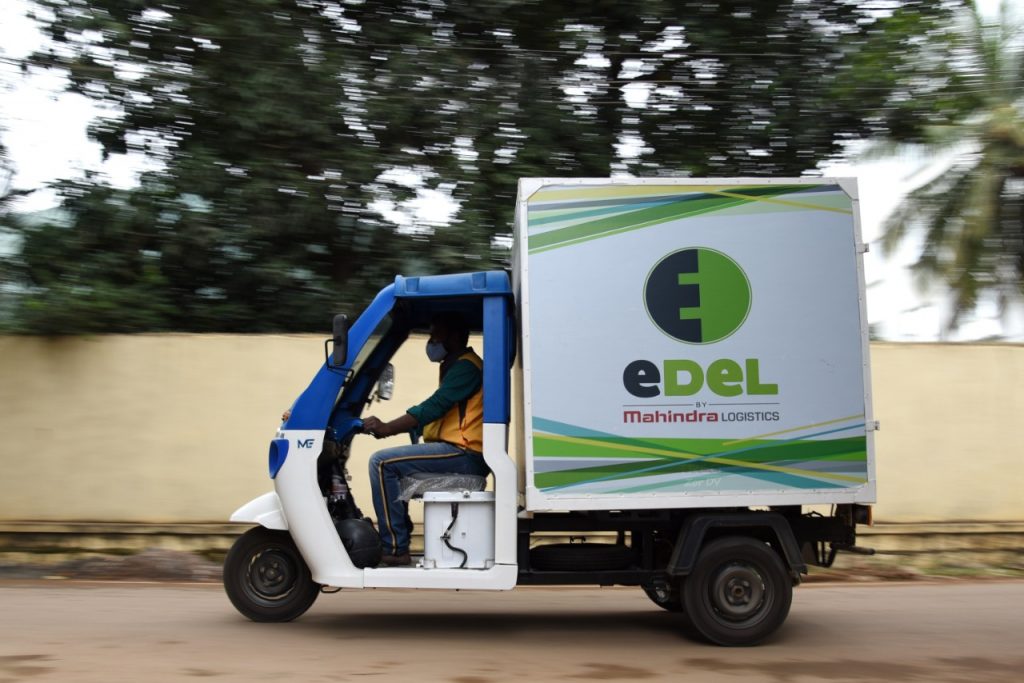

Flipkart, which is among the largest e-commerce marketplace in the country, today announces its partnership with EDEL by Mahindra Logistics which will help accelerate the deployment of electric vehicles in the last mile delivery. This is in tune with the company’s aim to become 100 per cent electrified by the end of 2030. EDEL is a company under Mahindra Group that provides sustainable delivery services with the use of electric vehicles, charging stations, integrated technology-based control tower and trained personnel. Flipkart aims to deploy around 25,000 electric vehicles to fulfil its aim to be 100 per cent electrified by 2030.
In order to achieve sustainable and environmentally friendly business practices, Mahindra launched EDEL in late 2020. Currently. EDEL is in partnership with multiple companies in the consumer and e-commerce domain across 6 major cities in India namely, Bengaluru, Mumbai, Delhi, Pune, Kolkata, and Hyderabad, and provides them with sustainable last-mile delivery solutions. Under this partnership, Flipkart will take advantage of EDEL’s large fleet of electric vehicles along with supporting services like infrastructure, charging stations, parking lots, training the workforce, route planning and more. EDEL plans to make its presence in over 20 cities at the end of this year.
The e-commerce company is in tie-up with a lot of OEMs like Hero Electric, Mahindra Electric and Piaggio to name a few, which help in procuring two and three-wheeler electric vehicles used in its supply chain. This partnership with EDEL will further make Flipkart’s stand strong for its promise of electric vehicle adoption and help in the deployment of the resources at a national scale. The demand for electric vehicles in the country is on the rise, given the sky-rocketing fuel prices. In the commercial market, there has been a significant shift from fuel-powered vehicles to eco-friendly electric motor-driven vehicles. E-commerce giants like Amazon and Flipkart are doing their bits to push the adoption of electric vehicles which will benefit both the citizens and their cost of operations alike.

